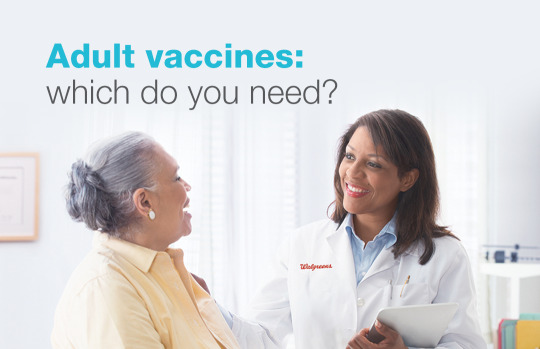
These, along with the vaccine against tetanus diphtheria-pertussis vaccine (Tdap), are the most important vaccines for older adults.
An annual seasonal flu (influenza) vaccine is especially important for older adults, people with chronic health conditions, and pregnant women. The US Centers for Disease Control (CDC) estimates that up to 70 percent of seasonal flu-related hospitalizations occur in people 65 years and older.
Pneumococcal vaccines are recommended for all adults over 65 years old and for adults younger than 65 years who have certain medical conditions such as chronic lung disease or heart disease. In the U.S., more than 50,000 people die each year from pneumonia, making it one of the deadliest infectious diseases in the country. Yet less than two-thirds of adults 65 years and over have ever received a pneumococcal vaccination.
The pneumococcal vaccines protect against illnesses like meningitis (infection of the covering of the brain and spinal cord) and bacteremia (blood infection). Two types of pneumococcal vaccines are available: pneumococcal conjugate vaccine (PCV13) and pneumococcal polysaccharide vaccine (PPSV23). PCV13 protects against 13 types of pneumococcal bacteria that cause the most severe illness and PPSV23 protects against 23 types. Your health care provider or pharmacist can determine which pneumococcal vaccine you need and when.
Zoster vaccine protects against shingles and is recommended for adults 50 years or older. Shingles, also known as zoster, is caused by varicella zoster virus, the same virus that causes chickenpox. Studies show that more than 99% of Americans ages 40 and older have had chickenpox, even if they don’t remember getting the disease. An estimated 1 out of every 3 people or 1 million Americans get shingles every year. A new, more effective vaccine for preventing shingles is now available and is recommended even if you have already received previous vaccination against shingles. A persons risk of developing shingles and its related complications increases with age. Vaccination is the most effective way to prevent shingles.
Pertussis, or whooping cough is a respiratory disease that can easily spread from person to person. Vaccination can protect both adults and babies who are susceptible. Every adult should get the Tdap vaccine once if they did not receive it as an adolescent to protect against pertussis (whooping cough). This is especially important for adults who have contact with infants who are too young to be vaccinated against pertussis. Infants usually catch whooping cough from family members and caregivers. The CDC recommends that anyone in close contact with a baby, including pregnant women, parents, siblings, child care providers, grandparents, and healthcare workers, should get a single dose of Tdap vaccine. CDC estimates that Tdap vaccination protects 7 out of 10 people who receive it, but protection does fade over time. For adults, a Td (tetanus, diphtheria) booster shot every 10 years will keep you protected.
Common side effects for vaccines are mild and include pain, swelling, or redness where the shot was given. Ask your health care provider if you have any questions about vaccine safety. Talk with your health care provider about your health history, including past illnesses and treatments, as well as any allergies. It is important to talk with your healthcare professional to find out which vaccines are recommended for you. You can visit your local Walgreens for a convenient way to get all these vaccinations.
Stay well, be well~
Pharmacist Andy
Andy Stergachis, Ph.D., R.Ph. is the Director of the Global Medicines Program at the University of Washington in Seattle and a subject expert on public health and pharmacy-related topics

